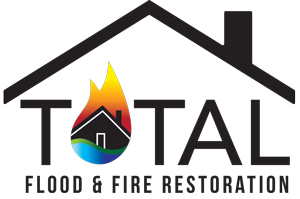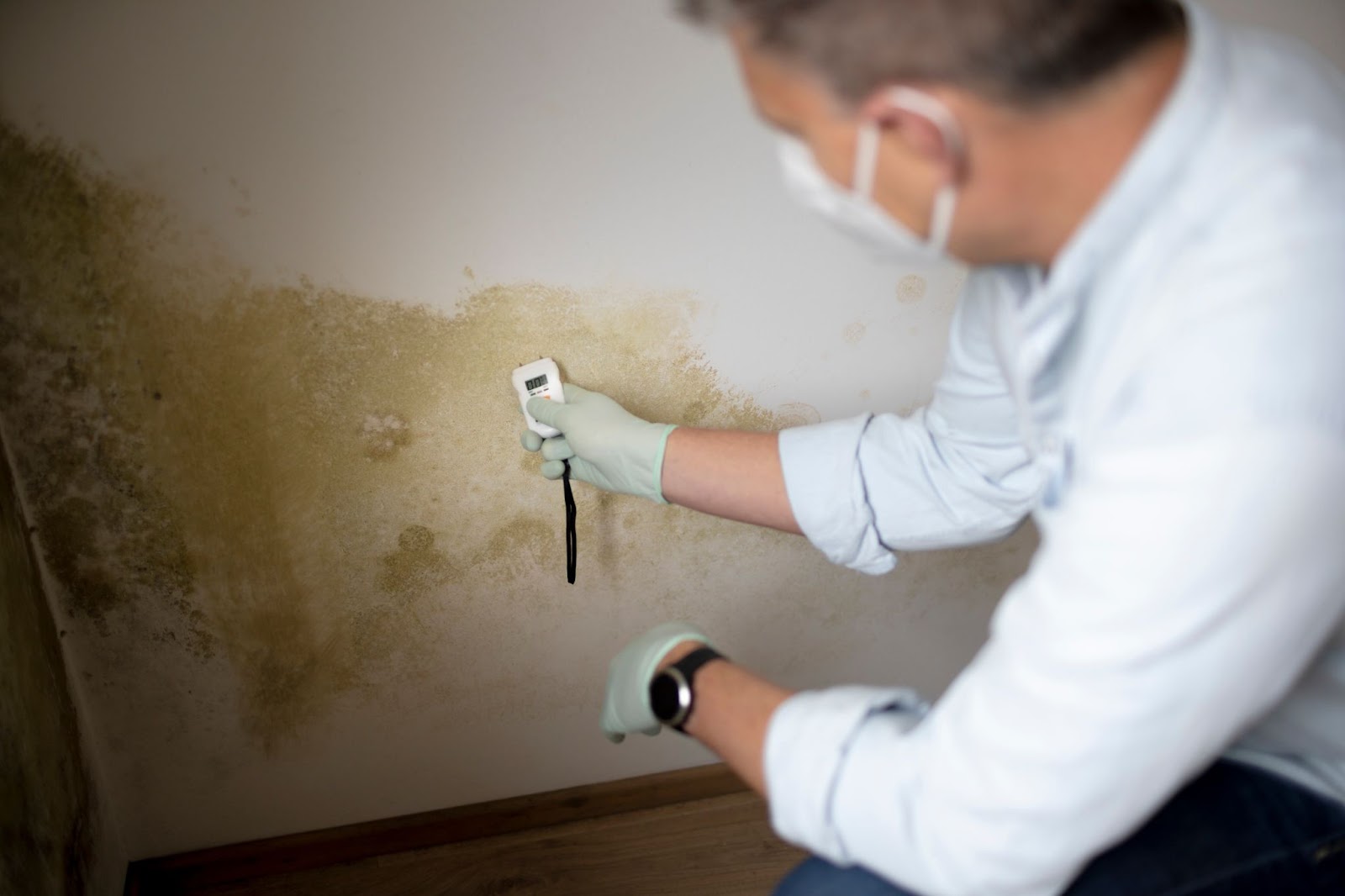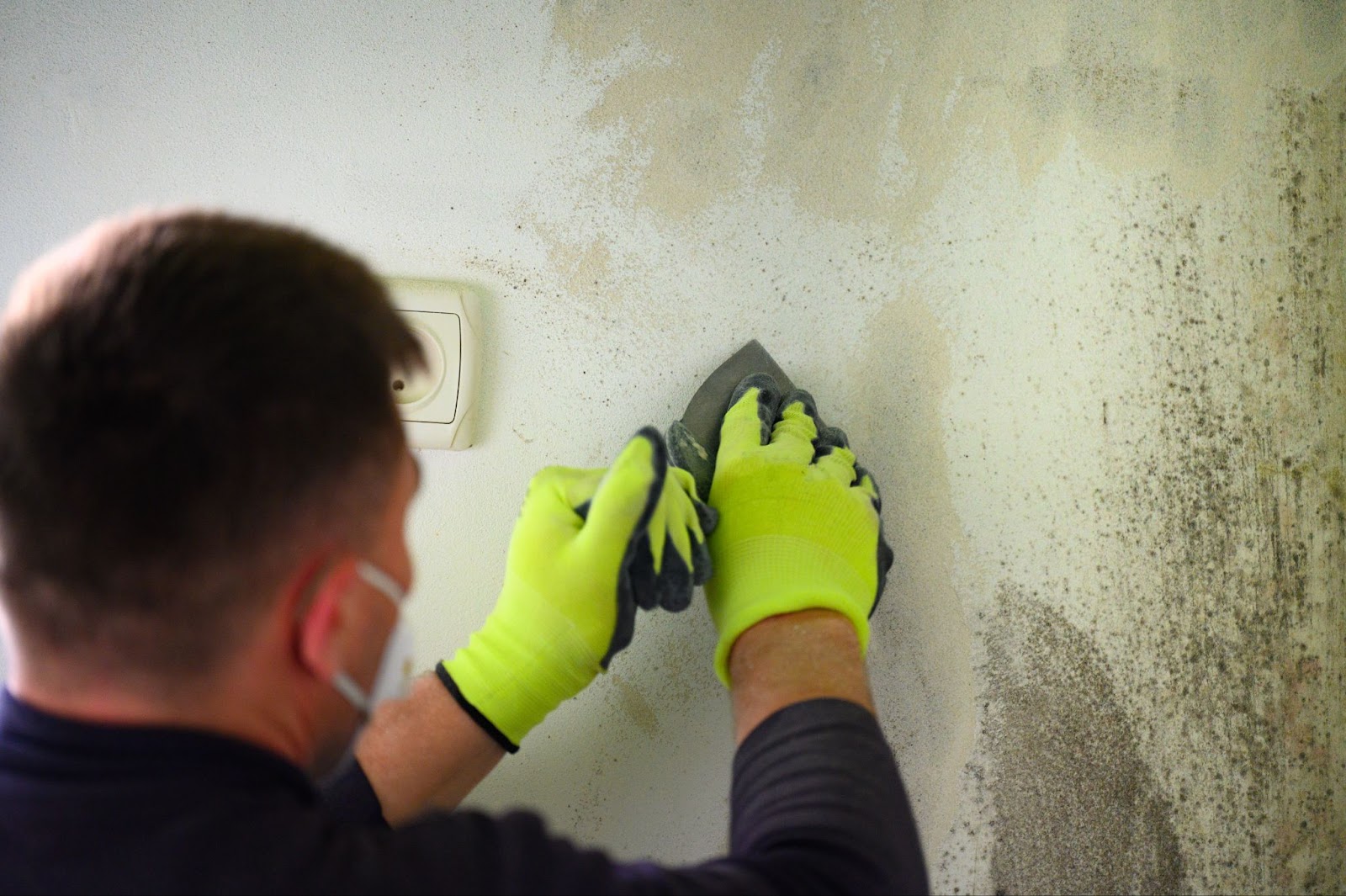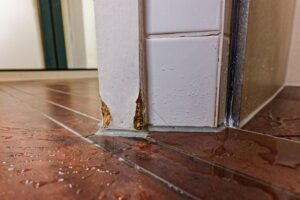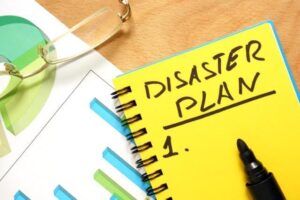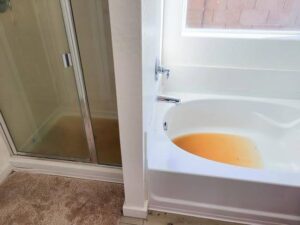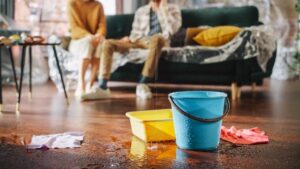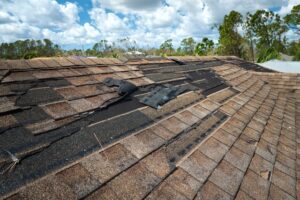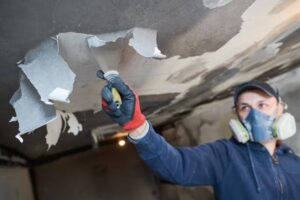Mold in your home often hides in damp corners, behind walls, and in poorly ventilated areas like bathrooms, basements, and kitchens. It thrives in environments with excess moisture and limited airflow. While some types of mold appear harmless, others release harmful spores and mycotoxins that seriously affect your health.
Recognizing symptoms of mold-related illness early protects you and your family from long-term complications. Many people overlook these signs, mistaking them for seasonal allergies, fatigue, or common respiratory issues. When symptoms persist or worsen without a clear cause, mold exposure might be the culprit.
This blog highlights the key warning signs of mold poisoning and offers guidance to help you identify, respond to, and prevent health risks associated with indoor mold growth. Understanding these symptoms could be the first step in reclaiming a healthy, mold-free home.
Table of Contents
ToggleWhat is mold poisoning?
Mold poisoning, also known as mold toxicity, occurs when your body reacts to prolonged exposure to toxic mold spores. These spores are often invisible to the naked eye; they travel through the air and settle on surfaces, continuing to grow and releasing harmful compounds.
Breathing in or coming into contact with these spores causes a range of health problems, particularly if you spend extended time in a mold-contaminated environment.
It’s important to distinguish mold allergy from mold toxicity. A mold allergy triggers the immune system and produces symptoms like sneezing, watery eyes, and congestion, which is similar to hay fever.
On the other hand, mold toxicity results from exposure to mycotoxins, which are toxic substances produced by certain mold species. This type of poisoning leads to more serious systemic effects, impacting the nervous system, respiratory health, and even cognitive function.
Black mold, or Stachybotrys chartarum, is one of the most well-known toxic molds linked to severe health risks. Other types include Aspergillus, Penicillium, and Fusarium, all of which may cause symptoms ranging from mild irritation to serious illness, depending on the exposure level and individual sensitivity.
Understanding mold poisoning can help you respond quickly, seek proper treatment, and eliminate the source of contamination in your home.
Common signs and symptoms of mold exposure
Mold exposure often triggers a wide range of health issues that escalate if left unaddressed. These symptoms may appear gradually and mimic other illnesses, making them easy to overlook.
However, paying attention to persistent or unexplained discomfort, especially after spending time indoors, could help you identify a hidden mold problem early and take action to protect your health and your home.
Respiratory issues
Mold exposure often hits the lungs first. Inhaling mold spores may lead to chronic coughing, sneezing fits, nasal congestion, and tightness in the chest. If you experience shortness of breath or wheezing that worsens indoors, mold might be lurking nearby.
People with asthma or other respiratory conditions often notice flare-ups, while those without prior issues may develop new sensitivities. Mold exposure even triggers upper respiratory infections in otherwise healthy individuals.
Skin reactions
Your skin serves as your body’s first line of defense, and mold irritants don’t hesitate to attack it. Direct contact with mold-contaminated surfaces or airborne spores may lead to itchy rashes, hives, or red, inflamed patches.
For some, exposure results in eczema-like symptoms or worsening of existing skin conditions. You might notice the irritation improves after leaving the affected area, further signaling a mold-related cause.
Neurological symptoms
Some mold species produce mycotoxins — harmful chemicals that affect the nervous system. Prolonged exposure to these toxins may lead to neurological symptoms like brain fog, difficulty concentrating, and short-term memory loss.
Many people report feeling mentally sluggish or disoriented without understanding why. Frequent headaches, migraines, dizziness, or a sense of imbalance may also stem from poor indoor air quality due to mold contamination.
Eye, nose, and throat irritation
Mold spores target the body’s sensitive mucous membranes. This results in red, itchy, or watery eyes and a scratchy or sore throat. You may experience constant sinus pressure, nasal congestion, or postnasal drip that doesn’t respond to typical allergy medications.
Because these symptoms resemble seasonal allergies or the common cold, many people dismiss them, allowing mold to continue spreading unnoticed.
Fatigue and weakness
One of the most insidious effects of mold exposure is chronic fatigue. You may wake up feeling tired, even after a full night’s rest, or find yourself struggling to complete daily tasks. Mold-related fatigue often coincides with other symptoms, like respiratory discomfort or brain fog, compounding the impact on your energy levels and overall well-being.
Over time, this persistent exhaustion affects your mood, productivity, and quality of life.
Digestive and immune reactions
Mold doesn’t stop at your lungs or skin. It disrupts your gut health, too. Some individuals report nausea, abdominal cramps, bloating, or changes in appetite after mold exposure. The immune system also suffers under the weight of continuous mold irritation. You might catch colds more often, struggle to fight off infections, or feel generally run down.
Who is most at risk?
Mold exposure does not affect everyone the same way. While some people may only experience mild irritation, others face severe and even life-threatening symptoms. Certain groups are far more vulnerable due to their age, health status, or immune response.
Understanding who faces the highest risk helps guide prevention efforts and ensures timely intervention.
Children and infants
Young children breathe more rapidly than adults and have developing immune systems, making them especially sensitive to environmental toxins. Mold spores in the air may trigger respiratory symptoms such as coughing, wheezing, and nasal congestion.
Prolonged exposure may also impact cognitive development and sleep quality. Because children spend significant time indoors, early detection and remediation in homes and daycare settings are crucial.
Elderly individuals
Aging weakens the immune system and decreases lung capacity. As a result, older adults are more likely to suffer serious complications from mold exposure. Even low mold levels in the air may lead to persistent respiratory issues, fatigue, and infections. Mold growth may go unnoticed in senior communities or older homes with moisture problems until symptoms escalate.
People with asthma, allergies, or pre-existing respiratory conditions
Anyone with asthma or chronic bronchitis may experience flare-ups when exposed to mold. Spores can irritate the airways, leading to difficulty breathing, chest tightness, and increased reliance on medications.
Those with environmental allergies often mistake mold symptoms for seasonal reactions, delaying necessary treatment. Individuals with compromised respiratory systems must remain especially vigilant about indoor air quality and moisture control.
Immunocompromised individuals
People undergoing chemotherapy, those living with autoimmune diseases, or anyone who has received an organ transplant face heightened vulnerability to mold toxins. Their bodies cannot fight off infections as efficiently, and even short-term exposure can lead to severe fungal infections or systemic illness.
A mold-free environment is essential for maintaining health and safety for these individuals.
How to confirm mold poisoning
Identifying mold poisoning requires more than noticing symptoms. Because signs of mold exposure often mimic other conditions, confirmation involves both medical evaluation and environmental testing. Taking a thorough, evidence-based approach helps you receive the right diagnosis and treatment while uncovering the source of exposure in your living space.
Seek a professional medical diagnosis
If you suspect mold exposure is affecting your health, visit a healthcare provider specializing in environmental medicine or toxicology.
General practitioners may recognize the symptoms, but mold-related illnesses often require advanced testing and expertise. A detailed health history, including your home and workplace environments, helps your doctor determine whether mold is a likely factor.
Get lab testing for confirmation
Doctors may order a combination of lab tests to assess your body’s response to mold. Blood tests can reveal markers of inflammation, immune dysfunction, or exposure to mold toxins. Urine mycotoxin testing detects specific harmful compounds produced by certain molds.
Some providers may also recommend allergy testing to see if mold is triggering a histamine response. These results give a clearer picture of how mold is impacting your body and guide the treatment plan.
Test your environment for mold
Alongside medical testing, evaluate your living space for contamination. A professional mold inspection includes moisture mapping, air quality assessments, and surface sampling to identify mold growth, even in hidden areas.
Inspectors use specialized tools, such as thermal imaging cameras and air sampling pumps, to locate problem spots behind walls, under flooring, and inside HVAC systems. Discovering mold in your home confirms the source of exposure and allows you to address it directly.
What to do if you suspect mold poisoning
Acting quickly when you suspect mold poisoning protects your health and home. The longer you remain exposed, the greater the risk to your body and belongings. Following a clear, proactive plan helps you regain control and confidently begin your recovery.
Leave the contaminated environment
The first step is to remove yourself from the affected space. Whether the mold is in your home, workplace, or another frequent location, limiting exposure reduces the risk of worsening symptoms.
If staying elsewhere isn’t immediately possible, isolate yourself from the mold by closing off affected rooms and increasing ventilation. Use air purifiers with HEPA filters to trap airborne spores and reduce indoor contamination.
Contact certified mold professionals like Total Flood and Fire Restoration
Bring in trained and certified mold inspectors to assess the severity of contamination in your home. These specialists use moisture meters, thermal imaging, and air sampling tools to identify hidden mold growth behind walls, under flooring, or inside air ducts. If mold is confirmed, hire a professional remediation company to handle the cleanup safely. Certified professionals follow strict protocols to remove mold, repair damage, and prevent it from returning.
If you suspect mold in your home, don’t wait. Trust the Total Flood and Fire Restoration certified team to assess, remediate, and restore your space safely and thoroughly. Our experience, advanced equipment, and commitment to your well-being ensure a cleaner, healthier home — starting today. Call 385-503-3572 now!
